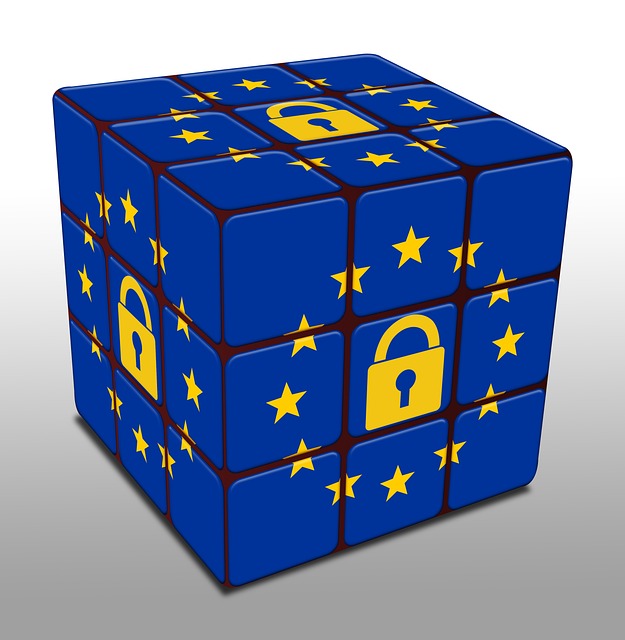The General Data Protection Regulation (GDPR) significantly impacts accounting and CPA firms globally, demanding strict data privacy standards for EU citizens' information. CPAs must prioritize transparency, consent, and secure data handling practices to maintain compliance. This involves robust IT systems, encryption, access controls, regular IT audits, and employee training. Specialized accounting compliance tools automate tasks, enhance efficiency, and ensure real-time tracking of data usage, streamlining operations while adhering to GDPR requirements for financial record integrity and client trust. Continuous monitoring, updates, and adherence to industry best practices are vital for firms to stay ahead in the dynamic financial IT landscape.
In today’s digital age, financial IT systems are under intense scrutiny, with regulations like GDPR setting global standards for data privacy. For Certified Public Accountants (CPAs), navigating this landscape is crucial. This article explores how CPAs can ensure their financial IT systems meet regulatory compliance requirements. We delve into key areas such as understanding GDPR’s impact, implementing technical solutions, and the vital role of continuous monitoring to safeguard sensitive financial information in an ever-changing regulatory environment.
- Understanding GDPR and Its Impact on CPAs
- Key Regulatory Compliance Requirements for Financial IT Systems
- Data Privacy and Protection Measures for Financial Information
- Role of CPAs in Ensuring Data Security and Integrity
- Implementing Technical Solutions for Regulatory Compliance
- Continuous Monitoring and Updates for Evolving Regulations
Understanding GDPR and Its Impact on CPAs

The General Data Protection Regulation (GDPR) has significantly shifted the landscape of data privacy and protection laws globally, impacting various industries, including accounting and CPA firms. As CPAs navigate the complexities of financial reporting and auditing, ensuring compliance with GDPR becomes an essential aspect of their practice. This regulation, applicable across the European Union, imposes stringent rules on how personal data is handled, stored, and shared. For CPAs, understanding these requirements is crucial when dealing with client information, as non-compliance can result in severe penalties.
GDPR’s reach extends to international businesses that process EU citizens’ data, making it a significant concern for accounting professionals serving multinational clients. It emphasizes transparency, consent, and the right to access and control personal information. CPAs must implement robust IT systems and processes to safeguard client data, ensuring secure storage, encryption, and access controls. Moreover, effective file security measures, including regular IT audits, are vital to demonstrating compliance with GDPR for CPAs and maintaining the integrity of financial records.
Key Regulatory Compliance Requirements for Financial IT Systems

The key regulatory compliance requirements for financial IT systems are vast and evolving, especially with global standards like GDPR (General Data Protection Regulation) for CPAs. These regulations demand robust data protection, privacy, and security measures to safeguard sensitive financial information. Compliance monitoring is crucial here; CPAs must implement processes that ensure continuous adherence to these standards, using specialized accounting compliance IT tools can help streamline this process.
IT audits for accountants are another critical aspect. Regular reviews of IT systems and controls by independent auditors ensure that they meet the necessary requirements. This involves evaluating data integrity, access controls, and incident response plans among other factors. By adhering to these guidelines, CPAs not only fulfill regulatory obligations but also build trust with their clients and maintain the highest standards of professionalism in their industry.
Data Privacy and Protection Measures for Financial Information

In the digital age, CPAs must ensure robust data privacy and protection measures for financial information to meet regulatory compliance requirements, particularly under the General Data Protection Regulation (GDPR). This involves implementing stringent access controls, encrypting sensitive data both at rest and in transit, and establishing secure backup procedures to safeguard against unauthorized access or loss. Regular audits and employee training on data security best practices are also crucial components of a comprehensive strategy.
Compliance monitoring requires ongoing vigilance. CPAs should regularly review and update their regulatory data systems to reflect changes in GDPR standards and industry best practices. Additionally, proper data retention policies, tailored to the specific needs and requirements of financial information, ensure that relevant records are kept for the necessary period without exposing them to unnecessary risks or breaches.
Role of CPAs in Ensuring Data Security and Integrity

CPAs play a pivotal role in safeguarding financial data integrity and security within their organizations. As trusted professionals, they are responsible for ensuring that IT systems and processes align with regulatory standards, particularly concerning GDPR for CPAs. This involves implementing robust data protection measures to maintain confidentiality, accuracy, and availability of sensitive financial information.
Regular compliance monitoring is crucial, including conducting thorough IT audits for accountants to identify potential vulnerabilities and ensure CPA file security. By staying vigilant and proactive in their approach, CPAs can mitigate risks associated with data breaches, ensuring the integrity of financial records and maintaining public trust.
Implementing Technical Solutions for Regulatory Compliance

Implementing robust technical solutions is a pivotal step for CPAs to achieve and maintain regulatory compliance, particularly in light of stringent data privacy regulations like the GDPR. These advanced tools play a crucial role in ensuring the security and integrity of financial data, which is at the heart of accounting practices. By adopting specialized accounting compliance IT tools, CPAs can automate many tedious tasks involved in ensuring GDPR for CPAs adherence, thereby reducing human error and increasing efficiency.
Effective technical solutions not only safeguard sensitive client information but also facilitate seamless compliance monitoring. These systems enable real-time tracking of data access, usage, and storage, providing a clear audit trail that is vital for regulatory checks. With the right tools in place, CPAs can streamline their operations while adhering to stringent industry standards, fostering trust among clients and ensuring their financial IT systems remain up-to-date with evolving compliance requirements.
Continuous Monitoring and Updates for Evolving Regulations

The financial IT landscape is dynamic, with regulations like GDPR for CPAs constantly evolving to protect sensitive data. Continuous monitoring and updates are essential for CPAs to stay ahead of these changes. By implementing robust systems that track regulatory shifts, firms can ensure their practices align with the latest standards. This proactive approach involves regularly reviewing and adapting security protocols, data retention policies, and file security measures.
IT legal support for CPAs plays a pivotal role in this process, providing expert guidance on compliance requirements related to data privacy, storage, and management. Staying informed about data retention CPA practices and industry best practices enables professionals to maintain the integrity of their financial systems while meeting regulatory expectations.
